Doug Moore is the talented singer/songwriter for the fast-rising “technical metal” band Pyrrhon. I spoke with him following the release of the band’s latest album ‘What Passes for Survival’ about the human experience of carving out a (sometimes) hospitable piece of the music industry to inhabit. Right now, he’s funding his music career with jobs writing for Clearer Thinking and Stereogum.
This interview took place on August 21st, 2017.
SAM: Besides making music, what do you do for a living?
DOUG: My main source of income is not death metal or deal-metal related (or even music related). Essentially, I am sort of a multi-role writer/researcher and factotum for Clearer Thinking. A succinct summation of what we do is that we advocate for rationality in an effort to encourage better decision-making in people’s daily lives. That’s sort of the elevator pitch for the site.
We create these little automated programs that you can take for free on the site, which mainly are designed to illuminate a concept that we think would be useful for people to apply in their daily lives. An example would be a program we made on the sunk-cost fallacy, which is the idea that basically once you’ve started investing in a project it’s not wise to continue to invest in it just because you have already invested in it, right? Often we get this feeling that we should stop investing, but a lot of people don’t stop, and they don’t for a variety of interesting cognitive reasons. So, in any case, there’s a little program that we made that is sort of like a 45-minute to hour-long explanation of what the sunk cost fallacy is, where you might see it in your daily life, and how you might try to prevent yourself from inadvertently falling prey to it.
Another thing we do is make little widgets that you might be able to use to help make better decisions on a daily basis. One of those that we made that became fairly popular was a little calculator that essentially helped you come up with a estimation for the dollar value of an hour of your free time. We also write blog posts and collaborate with other organizations that are working in the same space, trying to advance a greater interest in rationality and, essentially, sane decision making. *laughs*
SAM: How often do you work at Clearer Thinking? And can you walk me through a typical day of work?
DOUG: I essentially do work 35-40 hours for them most weeks, but I can change that at will by discussing my schedule with my boss. Most days I sit at home, typing away at my computer in my apartment, then around the early afternoon — between 1:00 and 3:00 — I take a little break and go to gym, then I come back, do a few more hours of work, and then around 6:00 or 7:00 I usually knock off for the day and spend the rest of my free time working on the non-remunerative, creative things I like to do. Most of which are, at this point, making music: working on my vocals and working on my guitar work (I don’t play in my main band, but I do play guitar in one of my other bands and I might help compose for Pyrrhon, the main band).
I also have a side-gig. I do a little bit of…“music criticism” is my high-falutin’ term for it. I currently write a column for Stereogum, which is a mostly pop and indie rock publication, but I do some metal coverage for them. I had previously run a metal blog called “Invisible Oranges,” but I stopped writing there once I’d been doing the column for Stereogum for about a year. Essentially the majority of my day is taken up by Clearer Thinking, and then I will do some logistical stuff for the music writing stuff: corresponding with publicists and talking to my colleagues who will help me with the column and so forth. Most of my generative moments are at night so I use the daytime for the somewhat more quotidian stuff that I do for my main job.
SAM: Where did the name for your band come from?
DOUG: The band name is *laughs* something that I have had a love-hate relationship with over the years. It was essentially a compromise among the people who were in the band when it started — the band formed in 2008 and only two of us remain from those days. But essentially, we kind of backed into it. I didn’t know much about Pyrrhon, the historical philosopher. He’s this radical skeptic, right? He essentially was sort of the original apotheosis of that sort of skepticism. *laughs* I still honestly don’t know all that much about him.
We honestly arrived at the band name because of the way it sounded and looked, I guess — which is one of the reasons why I feel a little ambivalent about it now. It’s impossible to pronounce or spell, so if we’re going by those metrics it’s not a great choice, but we’re three albums into a career at this point so I think we’re fairly stuck with it. But even though we sort of just backed into this name by bickering amongst ourselves as a bunch of 20-year-olds, the philosophy and lyrical approach of the band is… Well, generally speaking, we subject to criticism the base set of rules that most people seem to operate by, and, in the stuff that we create, a lot of the lyrics are about the more insidious features of daily life in contemporary society. Musically, our approach is, I would say, iconoclastic in a way in that we’re usually trying to upend the apple cart in one way or another.

SAM: So it seems like there’s actually a fair bit of overlap between your day job and your music, considering that you’re focusing on social structures in both?
DOUG: It has kind of worked out that way. Though not really by design. It’s sort of interesting that you ask this because I don’t talk about my job publicly very often, especially in relation to the band, so I haven’t thought very much about how they’re connected. But I think that you’re probably right in the sense that in both cases I’m thinking about the way things are structured in daily life, looking at what’s going wrong, and asking how things could be made better. I think the specifics of how I’m doing that in my two roles are very different, however, and have almost nothing to do with each other—which may be why I haven’t thought about the connection too much before.
Generally speaking, the band comes from a very emotional, intuitive place. Most of the lyrics are generated automatically—strange phrases that bubble into my subconscious to the point where I become aware of them and isolate them and write them down. Whereas what I’m doing with my job is a much more left-brain sort of thing where I’m thinking analytically (for the most part). There’s a lot of writing involved, but I’m generally trying to write about technical subjects in a way that will allow people to understand them. The Dionysian impulse that drives my work for the band is not really present in the Clearer Thinking work.
SAM: Your lyrics often seem very literary, for instance in “Mother of Virtues” from Pyrrhon’s second album. You mentioned that they’re generated automatically, but it seems like you must put a good amount of thought into organizing them.
DOUG: You’re definitely right. I’m not just saying, “Moon, june, spoon— okay, I got the lyrics.” The stuff I write about for the band is very much driven by my own preoccupations personally. So in that sense, there is an element of analytical thought that goes into my attitude about these things, especially since the band is mostly pretty topical. There’s a lot of writing about various social issues involved, but it’s all viewed through the lens of my personal, emotional responses to those things. For example, the song you brought up, “Mother of Virtues,” is explicitly about overpopulation up to a point, right? But it’s not meant to be a polemic where I tell you what to think about overpopulation because I did all the research and here are my conclusions. I mean, it’s a poem essentially. There’s an element of neurons firing intuitively in my head, and they produce these phrases, which reflect the anxiety and disgust and some other emotions that I have when I really think about overpopulation as a thing that’s actually happening. And I try to arrange these phrases into a song through an iterative process of trying out different stuff. So it’s really hard to draw the line between my left-brain attitudes about the subject and my right-brain process of generating lyrics about it that feel compelling.
Sam: So do the lyrics represent your own views? Do you try to account for your bandmates’ views as well?
Doug: As for whether all the lyrics should be taken as literal representations of my attitude, I would say definitely not. In part because there are some lyrics that aren’t written from my perspective — I sometimes do that storytelling-y thing when I write from someone else’s place because I’m ultimately not that interesting where I can carry the whole band with my own special feelings.
“If the question is whether the subject matter is chosen to evoke an aesthetic effect that matches the band, the answer is no. There’s a ton of me in the lyrics.”
If the question is whether the subject matter is chosen to evoke an aesthetic effect that matches the band, the answer is no. There’s a ton of me in the lyrics. That’s one of the things that I really try to strive for, actually, because so many metal lyrics are incredibly impersonal, either because they’re just poorly written or because the approach of the lyricist is to, you know, speak in the voice of an omniscient third-party narrator who’s describing this or that. A lot of times in metal lyrics you get the voice of God describing some evil and that’s not my approach at all, I really try to invest myself.
As to whether they reflect the views of the band, I would say that, broadly speaking, the answer is yeah. To the extent that Pyrrhon has a political perspective, we’re all pretty much on the same page. I would say that I’m probably marginally more engaged in that stuff than the rest of the band, but they’re all definitely paying attention. They’re all readers, you know, they’re an astute bunch of guys. But there’s not really a lot of give and take in that stuff. In some ways the attitudes of my bandmates affect what I write lyrically because I’m around them all the time — we talk about the issues as a band. *laughs* And I’m also thinking about my bandmates, thinking about their musicianship — I’m often writing to music they’ve written — so of course their attitudes will come through in the lyrics to a degree. At the same time, I don’t really consult anyone with what I write. Everyone’s usually like “that’s good!” and that’s the extent of the feedback that I get from them. If I said something that someone really didn’t agree with, they would say “I really don’t want to be associated with that sentiment,” but that’s never happened before.
Sam: Knowing Pyrrhon’s taste for compositional complexity, how do you go about putting your lyrics to music?
Doug: So in the case of Pyrrhon, getting the music and lyrics together into one cohesive thing is especially challenging because the music, even by the standards of the genre, is really challenging and complex. So as a result, in the early stages of the band, there was a really steep learning curve for figuring out how to write lyrics in a way that made sense with the actual song structures. That was made even more difficult because I’m an asshole and wanted to do something ambitious with the lyrics and have some poetic “friscon” or whatever. It was also really important to me that they looked good on the page, too, because when I was growing up as a fan of music, I would often hear a song that I liked and then look at the lyrics on the page and just think that it looked like a child wrote them.” Lyrics for rock music often look really clunky and awkward when you just read them out of context from the music. I wanted to get around that problem and that was easier when you were able to write in a consistent, regular meter. Pyrrhon can’t often do that because the music is just not like that, essentially.
“I often ending up choosing to pick things because I’m worked up into an emotional tizzy about some thing or another and I’m like “gotta get it out!'”
So the way that it ends up working is that there are two parallel processes that go on when putting the whole package together. The music generally grows up independently of the lyrics, so when we’re working on material for a new release, I start taking little notes in my mind about lyrical ideas that I have — just phrases that strike me or topics that I think we could do a whole song about, etc. In the meantime, we start composing the actual instrumental material, and as the sketches of the lyrics grow up, and as we get to the point of needing vocals for a composition that we’re relatively close to being able to perform, I’ll select one of the candidates that I’ve built for that release and pair it with the composition we’re working on. I’ll try to pick either the one that the music seems best suited for or whatever one I really want to write about at that time. I often ending up choosing to pick things because I’m worked up into an emotional tizzy about some thing or another and I’m like “gotta get it out!” so sometimes a song will get that lyric because that’s what I had to do at that moment.
So then it becomes a process of elaborating on a lyric and structuring it in a way that makes sense with the composition. In order for me to do that, I need to have a strong sense of the way that the composition works and what all the parts are, so often when we’re in practice just working on the music, I won’t have anything to do yet, so I’ll just sit there and watch the band play the song over and over and over again until I understand all the rhythmic ins and outs. So then, when I understand where I want the vocals to go, I’ll just try doing some death metal scat vocals over the music *laughs* where I just try to block in some ideas for where the lyrics are going to go. At the same time I’m developing a clearer idea for the structure of the lyrics in my head.
It sounds pretty involved, I guess, when I describe it (and I guess it is pretty involved). Basically there’s just this long, mutative process of taking these two threads — the lyrical idea that I had at some point and the compositional idea of the song — and gradually integrating them through lots of repeated listenings to the song and thinking about… what the lyrics and shit-, I don’t know. *laughs* It’s not really that interesting in theory, it’s basically just a thing that grows into itself with some coaxing from us.
Sam: So, I’m sure you get asked this all the time but, how do you avoid absolutely destroying your voice?

Doug: The answer that I always give to this question is: “with difficulty.” Just because it is pretty fuckin’ hard for me to do. Some people just naturally have a voice that is well suited to projecting lots of volume all the time and you can just go on living your rock and roll lifestyle and smoking tons and drinking tons and is totally fine the next day for you to just sing again. I am not that person, honestly. If you had told me even probably just ten years ago that I was ever going to have any renown as a vocalist of any kind, I would have thought you were crazy, because I don’t really have a naturally powerful voice. So I had to go to some lengths to sustain my voice for every show. There’s a bunch of things that go into it — one thing I do is practice a lot to strengthen my voice. A lot of metal vocalists seemingly just don’t practice — they’re just naturally able to do it. Must be nice for them, but I’m not like that. I warm up a lot and try to use good technique. Even with screaming, there is a lot of technique to it, a lot of which overlaps with conventional singing. You know: you need to use proper diaphragm support, and not get out of breath, and all of these things that keep you in the right physical posture while you’re performing. Other than that I try to not yell and scream too much when I’m not on stage and keep the partying to a minimum. I like to drink beer, like many people in bands, but on tour I don’t drink very much — I’ll have a beer or two, but I don’t really get drunk — which is, in the world of metal (as you can imagine), a little out of the ordinary. Another things that’s really important is sleeping a lot. When you’re asleep, your voice is being rested and that’s the time that you get the most recovery. So I try to sleep as much as I can, which can be kind of difficult on the road when you’re crashing on floors and doing long drives, but it is doable. It’s been a long learning process which has featured me losing my voice at many inopportune moments, but at this point I’ve mostly figured it out and it’s relatively rare that I have vocal problems.
…
I would say that compared to the average singer in a metal band, the thing that makes my vocal approach stand out is that I tend to code switch a lot (I guess would be one way to put it). There is a pretty broad range of screaming and yelling that you hear in metal, but usually in a given band you usually only hear like one or two. You’ll get the low beefy-sounding roar or you’ll get a high goblin voice, or you’ll get a guy who sounds like he’s in a hardcore band who’s doing the screamo thing. My approach involves jumping between lots of these different registers. I’ve got five or six and I’ve got a multi-effects pedal that I use, so there’s a lot of textural changes in what I do. Really the process of learning how to do that was just a lot of trial and error.
Sam: Knowing how much work it would take, when did you really commit to metal?
Doug: When I was a teenager, I knew I was interested in being a musician, so I was playing guitar, but I could already tell at that time that I wasn’t going to be a virtuoso, it didn’t come too naturally to me, so I started messing around with vocals just to see if I could do it, essentially. Over the years, I would practice my vocals by trying to imitate different records that I heard. I listened to a pretty broad range of “heavy music,” as they called it, and in my listening, I noticed that a lot of different metal singers would have different ticks and little foibles to the way they delivered words and I found that I could get a pretty broad range of different voices just by imitating different ticks. So in a way, I learned by doing impressions of different people, and in doing that I learned what my voice was capable of — which different things I could do well, which different things I thought sounded distinctive when I did them, which things I felt like had character or emotional expressiveness to them (not all these styles are especially expressive) — and eventually I started performing in different bands and trying out different styles. Eventually, I just developed a vocabulary for doing it. I wasn’t ever really trained or anything like that, I just winged it and blew my voice out a ton of times and eventually figured out what I was doing.
Sam: You’ve been getting a lot of positive coverage lately, does seeing that sort of envigorate you?
Doug: This is what I think of whenever I see a positive review: “it’s really cool that you like it, but I don’t think it’s the best thing we’re ever going to do, hopefully it will be blown out of the water by future Pyrrhon records.” I mean, it’s been gratifying to see the reaction, it’s been hard for me to tell how well it’s doing in the grand scheme of things, because positive critical feedback isn’t necessarily indicative of any public interest, especially in a very niche culture like metal, where the people who are writing about it are really intense hobbyists who are doing it for free, who have these very abstruse, long-tailed tastes that are highly specific and so far out from the normal of what anyone even in metal really listens to. *laughs* It’s totally unclear to me whether the enthusiasm amongst music writers is reflected by broader enthusiasm, but certainly our shows recently have been better attended than they were on the last record cycle. I think a big part of it is just that we’ve been plugging away for a while and have a little name recognition, so when the new record came out, people were immediately more receptive to it, it’s like the mere familiarity effect — there’s something from my job.*laughs*
Sam: I saw a particularly nasty YouTube comment that equated listening to a song off of Mother of Virtues to forcible prison sodomy.
Doug: *laughs* I think I saw that too.
Sam: How do you feel about that sort of ‘feedback’?
Doug: It’s true, YouTube is generally the place we get slammed the most, which I kind of relish, honestly. I have like a perverse love for really excessively negative feedback on Pyrrhon, mostly on the grounds that it’s a metal band that’s influenced by punk and harsh noise and all of these genres that are (in my mind) supposed to be antagonistic and offensive to people’s ears a lot of the time, right? So, rather than seeing a wall of, “it’s pretty good”s, I would rather have people hate my shit and think it’s repulsive and objectionable — that’s a lot closer to the reaction that I would have envisioned from people when I started doing this shit. It’s supposed to be antagonistic, it’s supposed to have an element of “fuck you” to it and I think that gets lost in a lot of metal bands in general. A lot of bands just seem like they want to be liked by everybody and that’s just not what we’re about.
“Yeah. Yeah we got called a ‘blight’ and I was like, ‘sick.'”
Sam: What are your thought’s about Pyrrhon’s place in music knowing that you’re getting a good amount of critical attention and acclaim while you all still need to work two jobs.
Doug: Um, let me think about that for a second. I feel like I would be remiss in complaining about Pyrrhon’s place in anything ever. Given what we’re doing, I think it’s really a privilege to have any audience whatsoever — the band is substantially more popular than I ever thought it would be. I kind of thought it was just going to be this sort of garage project for eternity that might’ve had a few fans, but wouldn’t really ever go anywhere. So, the broadest part of the reaction is that I’m really grateful to be a part of the conversation and have people listening to our music, even (and sometimes especially) if they find it really revolting or, a “blight in the face of metal,” as I saw this one blog today put it. Yeah. Yeah we got called a “blight” and I was like, “sick.” I would say that relative to my attitudes about music, a lot of people in the metal world seem to be very conservative — really interested in hearing the same few ideas that were conceived in the ‘80s and ‘90s (and ‘70s even) repeated in like a catechism to the way things used to be. As someone who’s trying to do something more inventive and left-field, I would prefer there to be more people who were receptive to that sort of thing, but that’s simply not how it is and that’s not how I would expect it to be, either. So, given the antagonistic and deliberately difficult nature of the project, I’ve been pleasantly surprised by how many people have been willing to give it a shot and do what’s required and see past the initial shock of the chaotic nature of the music.
Sam: [Some bullshit, two minute long question about how both horror movies and metal are both intended to disturb, but horror is more accepted by the mainstream. I forget. It was one of those things where I thought I was on some next-level shit at the time, but it was really dumb in retrospect.]
Doug: I would disagree a little bit with your evaluation of the aims and means of both of those styles. If you consider horror movies that do well and also most metal records that do well, they’re both pretty populist in nature, as well. Successful horror movies have clear, conventional narrative arcs that are designed to draw in viewers and compel them to care about the participants and the plot, and there’s a lot of window dressing to make them look cool. The desire to disturb and upset is an element of what they’re trying to accomplish, but it’s also set within the framework of a relatively straightforward piece of cinematic entertainment. There’s a reason why horror movies often aren’t thought of as being as prestigious as drama — it’s schelacky, it’s low-brow fun for the masses. A lot of that stuff applies to most conventionally-styled classical metal as well — it’s mostly, essentially really a form of pop music, with verse, chorus song structures that are built around clear, direct melodies. If you think about Metallica, right? All the classic metal bands, they’re rock bands, they’re playing a form of rock music that is essentially designed to be catchy and entertaining, even though there is an element of horror or anger that is the emotional locus of the art, it’s still in a digestible package. I think that what Pyrrhon is doing is more like a pompous, obnoxious art flick that, if if it has a plot, it’s buried under multiple layers of weirdness and you can’t tell what’s going on, and it really makes you feel like bad to watch it a lot of the time — it doubles down on the evocation of disgust and fear and all these other things, as opposed to having a bright, catchy melody that has some more minor notes to it. Hopefully, if you’re going to listen a couple times and do the work you’ll be able to get stuff out of it, and I think that’s why people are responding to the new record, but for both the Erasorhead type of movie and the Pyrrhon type of band, there are going to be a lot of people who are just gonna go, “nope, fuck that, I hate it” and that’s fine — it’s partially designed to get that kind of response too. In the more conventional metal band, there’s a balance of the desire to appeal and the desire to repel, whereas in a band like Pyrrhon, we’re not necessarily saying “we’re going to make music that no one likes,” but we are doing something that’s really weird and designed to be confusing and painful to listen to sometimes, and some people (like us) are masochists musically who like that kind of thing, and a lot of people are not.
Sam: What are the aims of the band?

“Pyrrhon is a thing that pays only for itself… sometimes.”
Doug: From the very beginning of the band, we have all been under the understanding that Pyrrhon is not designed to remunerate. If it does make any money — which at this point it does — the money is just re-invested into further band stuff. Pyrrhon is a thing that pays only for itself… sometimes.*laughs* So as a result, we’ve all had to do different things with out lives that allow us to pursue the band. We all have day jobs, 3/4 of us live in very expensive urban areas, we all have to make sacrifices with our lifestyles for our jobs, which are all more flexible types of things which allow us to tour and what have you. We all have to eat some shit to make this thing work. We all have to be frugal and take jobs that will let us tour — and that’s usually not a very well-paying job — and we live in expensive places. So it’s not easy to make it work, but we have done it so far and the reward we have from doing that is being able to do literally whatever the fuck we want artistically, which is more than rewarding enough to justify all the decisions we made to make that possible.
Sam: So I saw that you took the Chinatown bus from UPenn to NYC just so you could practice with Pyrrhon. That stuck out to me as a super interesting experience and I was wondering if you would care to expound on it.
Doug: I guess “fortunately” would be the correct word, I never saw anything too crazy. There were a lot of people who were messed up on drugs, but there were no real Canadian decapitation incident type happenings. No busses ever caught on fire, which is actually a thing that happens with Chinatown busses pretty frequently. I don’t think I ever saw anyone even barf on one of those busses, which was kind of a miracle given — especially back in those days — who was taking them. That at this point is far enough ago that it seems like it’s quite far in the rearview for me, but when I think about that period it gives me a bit of a nostalgic kick. On the face of it, doing that in college as a committed student who worked pretty hard in school was kind of crazy upon reflection. It was really a huge investment of time and not always the most fun thing to be doing during my Saturday — sometimes I would even do it during the week, take a day when I got out of classes early, practice for two and a half hours then run right back to the bus all sweaty. But at the time I remember thinking “okay, you’ve always wanted to be in a band, these guys are pretty talented, this might be your only opportunity to ever do this, even to the point where you could play live shows and maybe even go on a tour someday. There were times in the early days of the band where to commit to it like I did seemed like it might have been a mistake, but fortunately, I feel like we’ve gotten to a point where I get a warm fuzzy thinking about that one; I feel like I made the right choice.
…
I would say that the thing that I treasure the most about my experience with the band is tied directly to that kind of memory. We put so much of ourselves into doing it and we had to do so many stupid little tasks, like the DIY band things like hand-assembling record or thinking about the logistics of trying to get to this place or that. When I think about all the shit we did to finally have these little artifacts of our labor, these physical copies of the records — whenever I see the first copy of a new record and think about everything that went into it to create something that someone else can experience and hopefully take something productive away from, it’s really… there’s nothing else like it for me. It’s the best feeling, it means everything to me. *puts down mug*


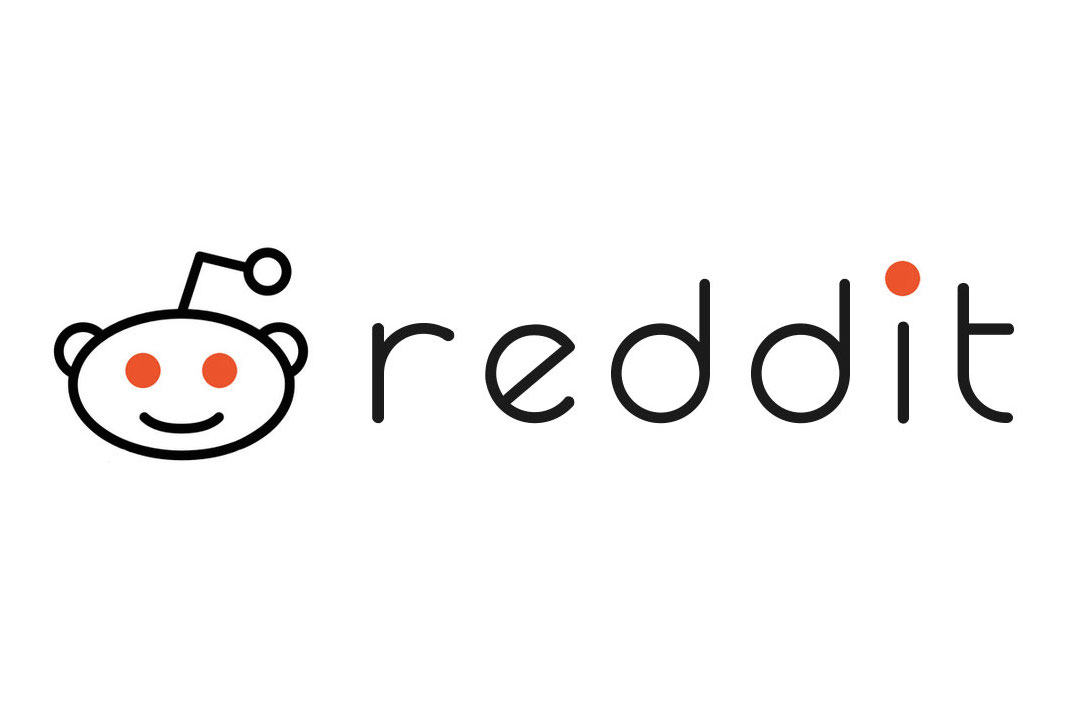



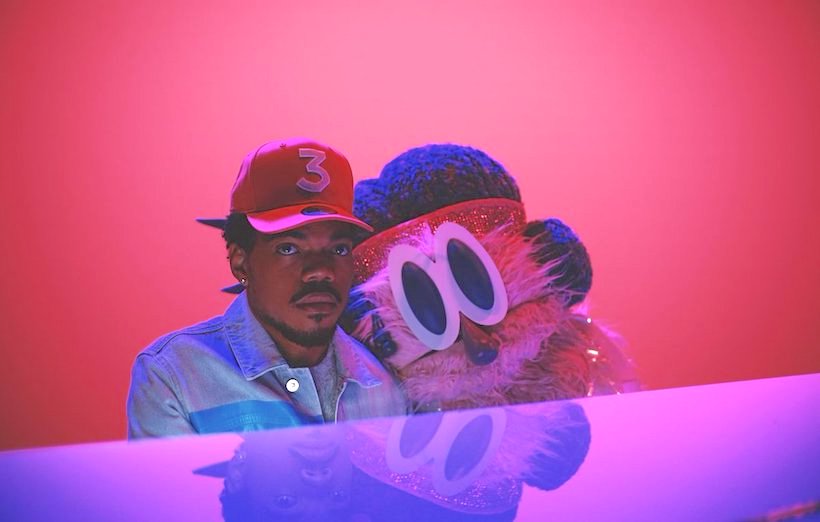




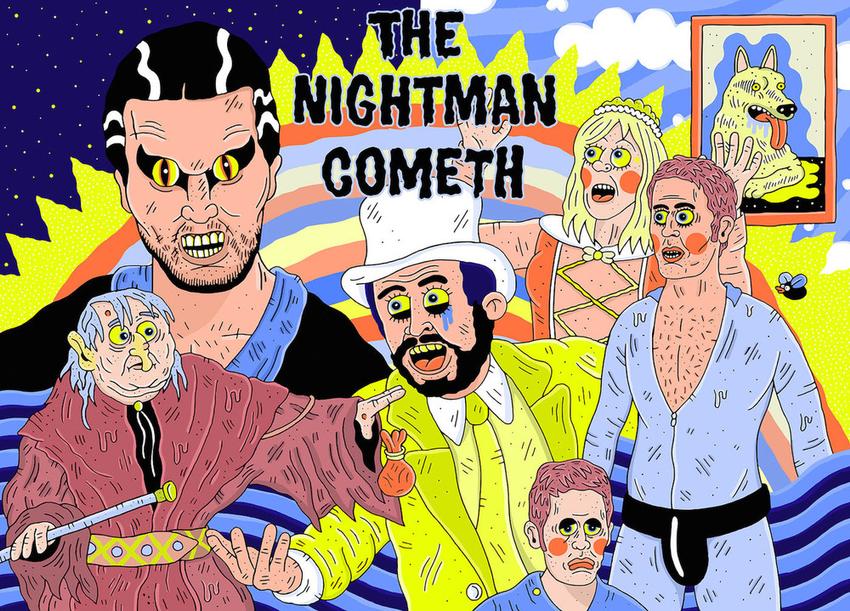

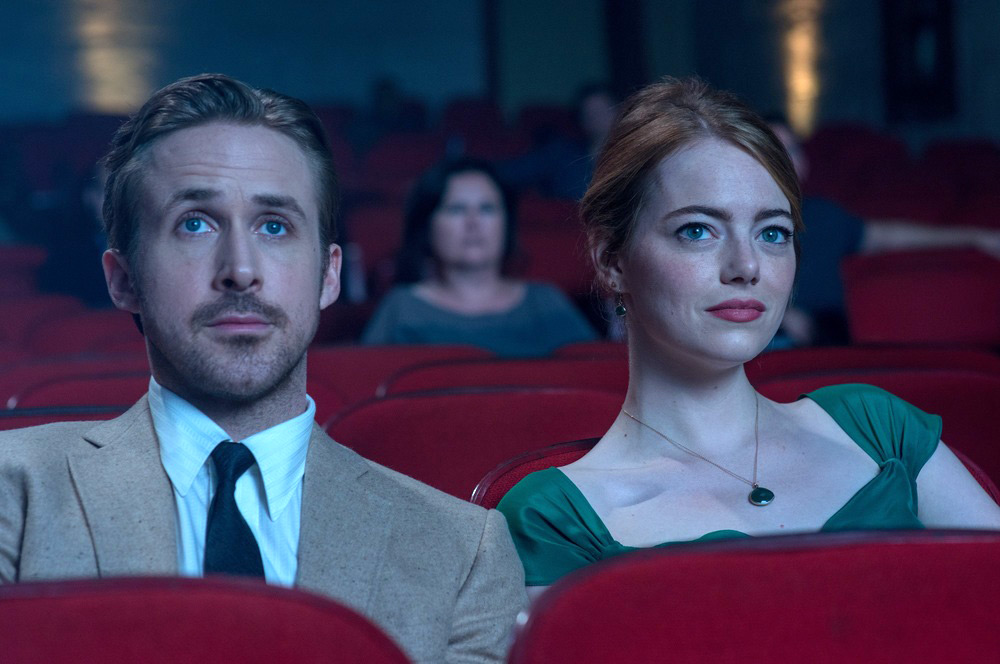



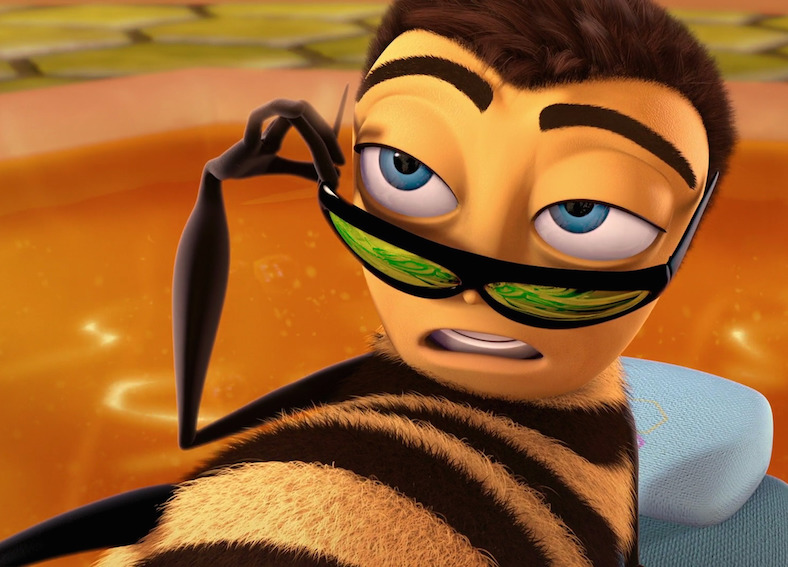












Recent Comments